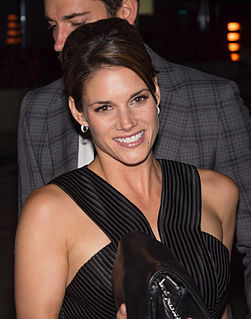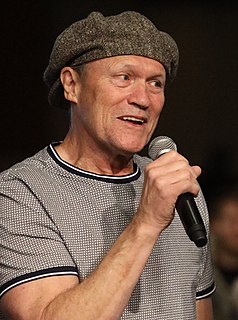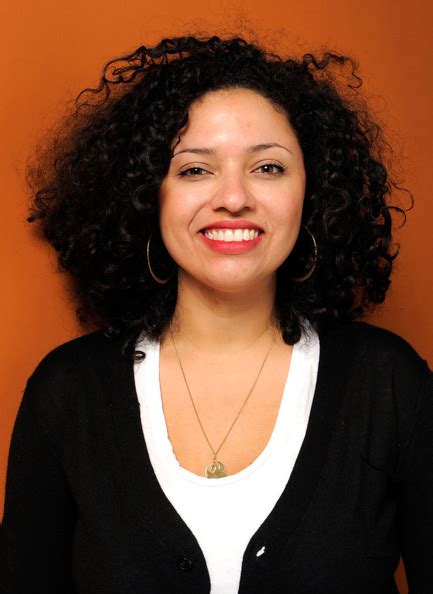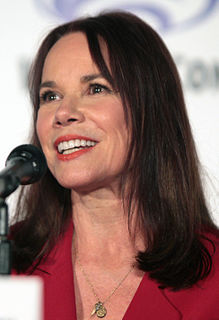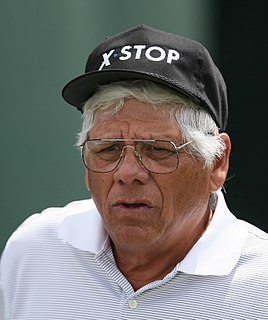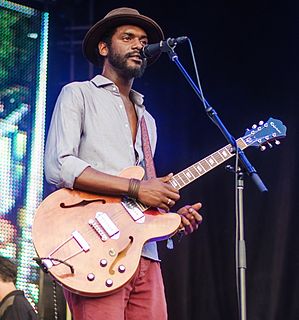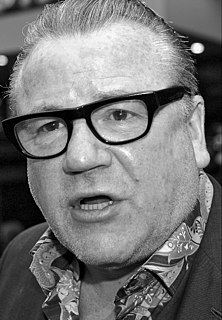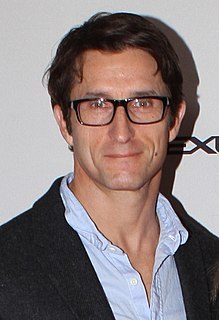A Quote by Eric Bana
I don't consciously seek out Australian projects. I put them on the same table as all the other scripts and I wouldn't ever do a film just because it's been shot at home.
Related Quotes
We're exposing our minors to abuse by the fact that they leave the radio on in the car and let them listen to the news on the way to school. Or the fact that it's shown on the news, the children can see Gaddafi's face and his glorious Technicolor clothes getting shot off on the news or on the newspaper shelves. In the shelves of the shops where all the sex magazines are consciously put at the top, if they're consciously put at the top, that must mean the violence is all put at the bottom consciously.
We actually tried to put in [Kung Fu Panda 3] all the things we wanted to put into the first two films. We're all the same people who've been working on the other films and we all had things we couldn't do, and had to leave on the table. We just couldn't achieve them before. This time we have multiple new environments and different styles of animation.
Well, I think that's been my career. I always choose stuff that's the same, yet different. These projects just happened. I didn't plan it out that way. I just happened to be free, and the director, Dan Pritzker, decided to do his film again. I say again because we did it seven years ago. A lot of the actors were not available, so he just couldn't wait anymore and he recast everything. Me and two other characters are the only people involved with the new one, who were involved with the previous one.
It's got to be a challenge but at the same time you have to feel as though you can play them - it's really dangerous to want to be a part of something just because you think it's going to be great. I've been sent plenty of scripts where I've known that it's going to be a great film and a successful one, but I just couldn't convince myself that I was the right person for the part. So, I think you have to be careful with that.
I love working with people and having them bring something to the table that I couldn't. I think one of my favourite artists to work with has been Kucka. She's Australian, too, and it's great working with her because we kind of have a very similar take on music, and we like a lot of the same stuff. We're not super-precious about ideas.
If I'm ever working on a set and anyone talks about a master shot, I say there is no master shot. Before I even went to film school, I learned about movies by being in a British feature film, where everything was shot master shot, mid-shot, close-up. But I reject the idea of a master shot. You don't shoot everything mechanically; you find imaginative ways that serve the action.
There hadn't been one done since the late 70s. I was living in Brooklyn, had no connection to Roger Corman, to no one in this movie. I didn't go to film school. I'm like the person who should have never made this film. But I just decided to put one foot in front of the other. I was writing film articles for magazines at the time. I convinced an editor from one of the magazines that I was working for to give me a shot to do a piece on Roger. This was an excuse to go meet him.
I opened up my mind as far as playing music. I was at a Cody Chesnutt concert a few years ago, and a friend introduced me to him. We just started talking about music, and he asked me what I did. I said, "I have these songs and I'm kind of nervous to put them out, because I've just kind of been playing blues stuff, and playing other people's songs." He said, "You should just put them out there, man. Why not? It's just gonna bother you if you don't. The easiest thing to do is to just let it go." So I just took that with me.
The other thing is that when people mention computers - and I'm pretty much the same - they find it hard to comprehend that there's a performance there. They look at it as something that's just been made by a computer but in a way the difference is that when you make a normal film - and I'm simplifying it here - you put on the make-up and you put the scenery in before you start shooting, but with this you still perform in the same way but then you put the make-up on after, along with the costumes and scenery.
I thought I was clever by greeting casting agents in my Australian accent and then switching to an American one during the performance. But the Australian accent seemed to put them off. Now it's the opposite; they love Australians. And with my thick Californian accent I now have a problem convincing them I'm Australian.


